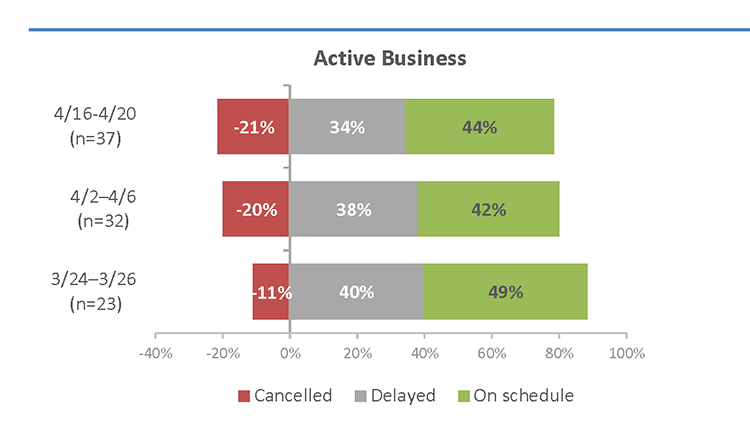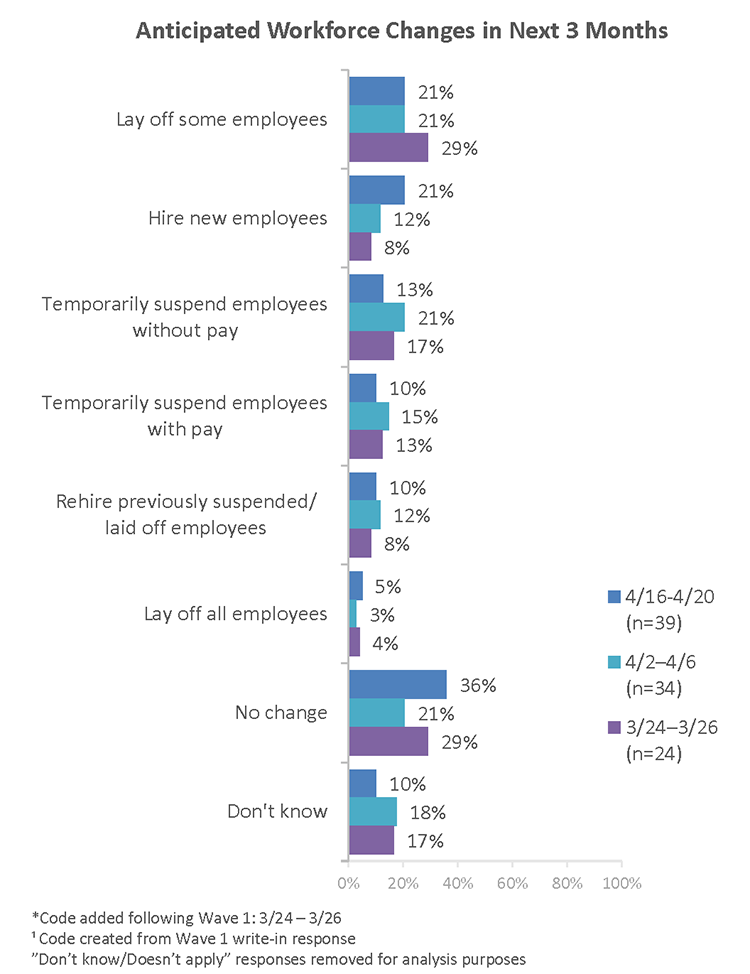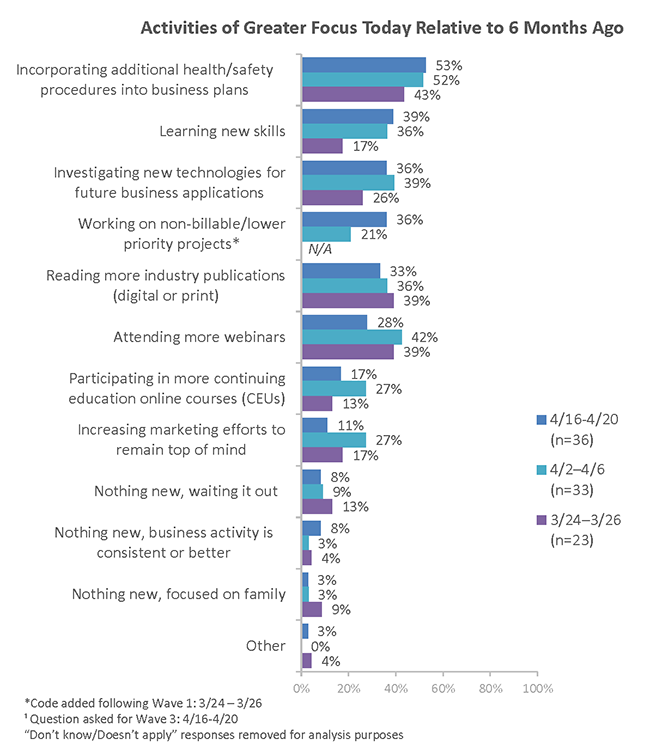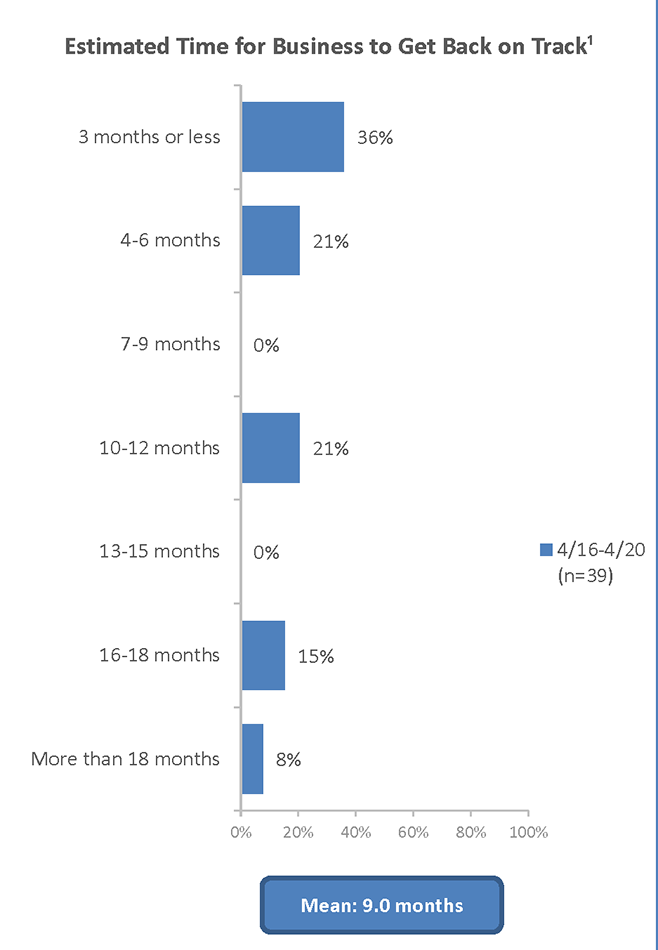As it has spread through the world, the COVID-19 pandemic has brought with it a world of unknowns.
In the panel session “Crisis & the everyday: the role of physical security in a world of change” at Genetec’s virtual tradeshow, Connect’DX, Brad Brekke, principal and managing consultant of The Brekke Group, emphasized just how complicated the pandemic’s effect on the security industry is.
“This is a unique challenge,” Brekke said. “This is a biological risk, and it’s an unknown — there is a lack of data, not just for the security industry, but for the world. There’s a lot of uncertainty as we navigate this, and we’re being challenged in a way I’ve not seen before.”
New research from Clear Seas, a BNP Media company, shows how this uncertainty is bringing an ever-shifting outlook to industry professionals. Clear Seas deployed the survey to those in the security and critical facilities industries at three different points in the pandemic: the week of March 24, the week of April 2, and the week of April 16.
In March, a whopping 73 percent of survey respondents were concerned about achieving their business goals over the next six months. But concern has decreased with time; 67 percent of respondents said they were concerned about reaching these goals on the week of April 2, and only 63 percent were concerned last week.
But other concerns — like the concern of IT cyber security — have increased over the past month. Twenty percent of survey respondents were concerned about cyber security with remote employees in March, while 37 percent were concerned on April 2 and 56 percent were concerned on March 16.
In some areas, concerns were highest the week of April 2, but have since gone back down. Concerns about supply chain interruptions fluctuated from 50 percent of respondents in March, to 74 percent on April 2 and 66 percent April 16.

The research also shows how cancellations in business projects have increased throughout the pandemic. In March, survey respondents reported that 11 percent of their active business had been cancelled, while 40 percent was delayed and 49 percent was on schedule. On April 16, 21 percent of business was cancelled, 34 percent was delayed and 44 percent was on schedule.

When asked about anticipated workforce changes in the next three months, survey respondents have become more optimistic as the pandemic progresses. While 29 percent of respondents anticipated laying off some employees in March, 21 percent predicted layoffs April 2 and 16. Eight percent of survey respondents anticipated hiring new employees in the next three months in March; 12 percent anticipated new hires April 2 and 21 percent on April 16. Seventeen percent of March survey respondents anticipated temporarily suspending employees without pay, while 21 percent of April 2 respondents anticipated suspensions, and 13 percent of April 16 respondents.

Businesses have also been putting greater focus on certain activities than they did six months ago due to the coronavirus, according to Clear Seas. Forty-three percent of March survey respondents, 52 percent of April 2 respondents and 53 percent of April 16 respondents reported a greater focus on incorporating additional health/safety procedures into business plans than six months ago. Seventeen percent of March survey respondents reported a greater focus on learning new skills, and that percentage shot up to 36 percent April 2 and 39 percent April 16. Twenty-six percent of respondents reported an increased focus on investigating new technologies for future business applications in March; 39 percent reported increased focus in new technologies April 2, and 36 percent on April 16.

Clear Seas’ research also provides interesting information on when security and critical facilities professionals expect business to get back on track. On April 16, 36 percent of respondents expected things to be back to normal in three months or less, while 21 percent predicted four to six months, 21 percent predicted 10-12 months, 15 percent predicted 16-18 months and eight percent predicted it would take more than 18 months for business to get back on track.

Find the full report from Clear Seas Research at https://www.clearseasresearch.com/product/security-critical-facilities-ipct-report-fieldwork-april-16-20-2020/.




